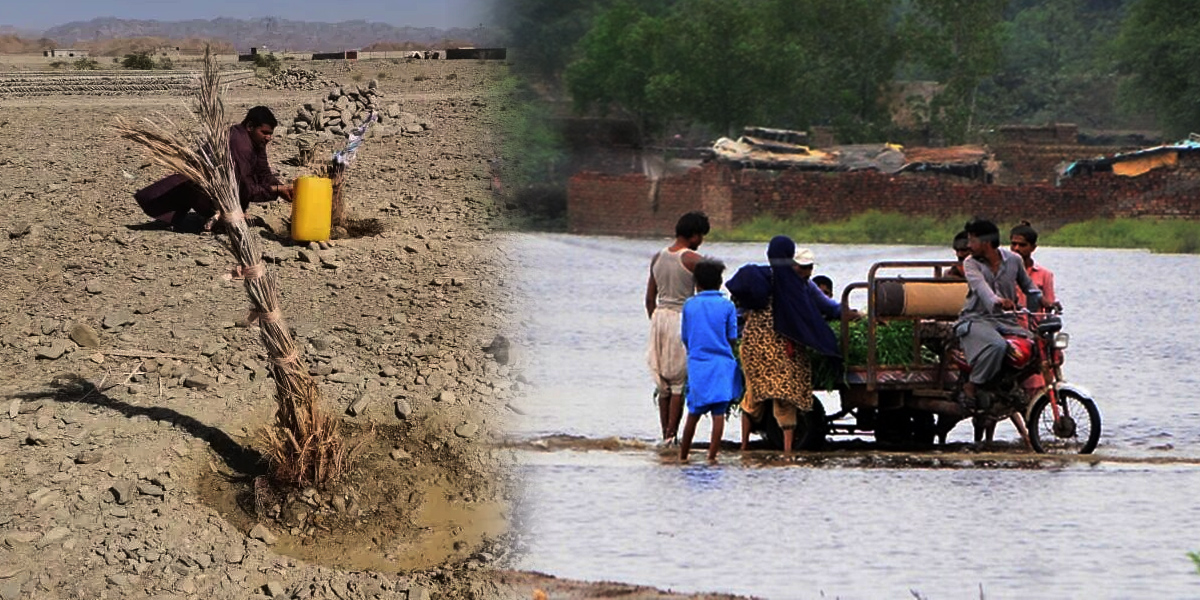Balochistan, despite its marginalized status, has become a leader in climate action! By focusing on environmental sustainability, public health, and social inclusion, the Balochistan Climate Change Policy (BCCP) sets an example for other provinces to follow. Its comprehensive approach offers valuable lessons for Pakistan’s fight against climate change.
Provinces are no longer mere spectators in the climate crisis; they are the battlegrounds where the future of our planet is being shaped. In a surprising turn, Balochistan—often seen as Pakistan’s most neglected province—has emerged as an unexpected champion of climate action. According to the UNDP’s July 2024 report, Balochistan’s new climate change policy stands out not just because of its ambition but also due to the province’s unique challenges. The real question is: can other Pakistani provinces rise to the occasion and craft similar strategies to combat climate change?
To this day, water scarcity and desertification remain critical challenges in Balochistan. In response, the Balochistan Climate Change Policy (BCCP) has adopted strategic solutions to conserve water, promote afforestation, and encourage sustainable agriculture. Given below is a glimpse of what they’re doing:
- Agriculture-Water Nexus: BCCP integrates natural systems like wetlands and forests into agriculture, creating a sustainable relationship between water use and farming. This innovative approach shows how interconnected water and agriculture truly are.
- Natural Capital Management: BCCP focuses on managing Balochistan’s land, water, and air resources in a sustainable way, ensuring that the natural environment is preserved for future generations.
- Climate-Resilient Infrastructure: Recognizing the intensifying impacts of climate change, Balochistan is investing in infrastructure that can withstand these challenges, such as buildings designed to endure extreme weather.
- Empowering Communities: One of the policy’s key strengths is its focus on building human capital. By educating and mobilizing local communities, BCCP aims to create a population that is well-equipped to tackle climate-related issues head-on.
- Disaster Risk Management: An efficient disaster management framework is at the heart of BCCP, allowing the province to respond swiftly and effectively to climate-induced crises.
- Social Inclusion: BCCP places a strong emphasis on gender, youth, and social inclusion, ensuring that the fight against climate change is a shared effort.
By crafting a policy that examines every sector with a microscope, Balochistan is setting an example of what climate action should actually look like!
What Sets BCCP Apart?
Balochistan’s climate policy isn’t just about the environment—it’s a holistic plan that tackles public health and social equity too. With its 735 km coastline rich in mangrove forests, Balochistan sees an opportunity to harness its “ecological wealth” for carbon sequestration while generating financial resources for conservation and supporting coastal communities.
On the health front, BCCP addresses climate-related health risks by strengthening public health infrastructure and integrating these concerns into broader climate policies. This includes focusing on high-risk groups and incorporating gender-specific health considerations. The policy doesn’t stop there; it also emphasizes WASH (Water, Sanitation, and Hygiene) initiatives, such as improving access to clean water and sanitation. By doing so, Balochistan aims to mitigate the adverse health impacts of climate change and enhance the resilience of its healthcare system.
Moreover, one of the most progressive aspects of BCCP is its incorporation of the Gender, Disability, Youth, and Social Inclusion (GEDSI) framework. Recognizing that women, girls, and transgender individuals are disproportionately affected by climate change, the policy integrates gender-sensitive approaches and actively promotes the empowerment of marginalized groups. By including youth in the conversation and decision-making processes, the policy ensures that climate action is inclusive and equitable.
Lessons for Other Provinces
Balochistan’s geography and challenges may be unique, but the core issues of climate change are shared across Pakistan. Therefore, it is essential to examine how other provinces are responding to these issues through their respective policies.
– Sindh: With its extensive coastline, Sindh focuses on coastal management and flood control. The province also emphasizes urban planning to combat the impacts of climate change on cities like Karachi.
– Khyber Pakhtunkhwa (KP): Facing glacial melt and deforestation, KP has introduced community-based forest management and disaster risk reduction strategies.
– Punjab: Punjab’s climate policy (approved September, 2024) is an ambitious mix of green investments and educational reforms. Key initiatives include the “Plant for Pakistan” campaign, interest-free loans for small businesses to adopt green practices, and solar panel projects to promote renewable energy.
As evident, each province has tailored its climate strategy to address its unique environmental challenges. However, Balochistan’s approach offers a compelling lesson in how to create a policy that goes beyond mere environmental concerns to include social and economic dimensions as well.
The Role of Civil Society and Youth Engagement
BCCP highlights the importance of engaging civil society and youth in the climate fight. History bears witness to this that policies crafted in isolation rarely succeed. By involving communities and young people, Balochistan ensures that its climate actions are grounded in local realities. This inclusive approach not only makes the policies more effective but also ensures long-term sustainability, as the next generation carries forward these initiatives.
A Call to Action
To leave you with a lasting thought, Balochistan’s journey in climate policy shows that being a leader isn’t about having the most resources—it’s about having the most resolve. The province has taken bold steps to address climate change, proving that even the most marginalized regions can set an example for others. It’s time for other provinces to take a page from Balochistan’s playbook. Climate action requires a collective effort, and as Balochistan has shown, every province has the potential to make a difference. The choice is clear: act decisively today or face the dire consequences tomorrow!
References
- Official UNDP document outlining BCCP 2024 – file:///Downloads/Baluchistan%20Climate%20policy.pdf
- https://tribune.com.pk/story/2478637/punjab-unveils-first-climate-change-policy
- NCCP Report – PDF (gov.pk)
Witten by Saba Rehman
Saba Rehman is an intern at CRSS with a strong background in Business Management and Marketing. She is passionate about leading change in the corporate landscape by promoting eco-friendly practices and advocating for a sustainable, net-zero future.

